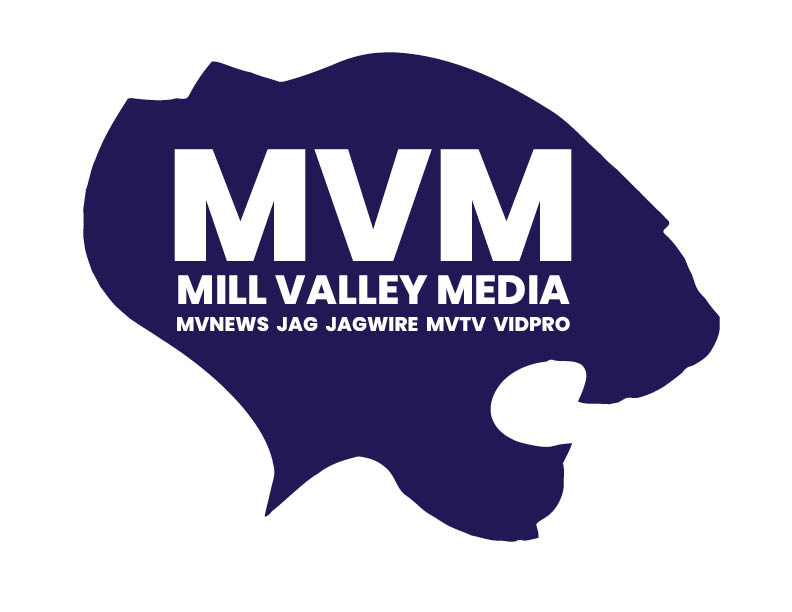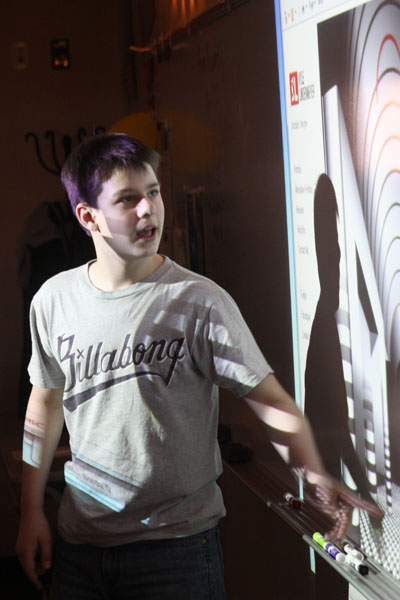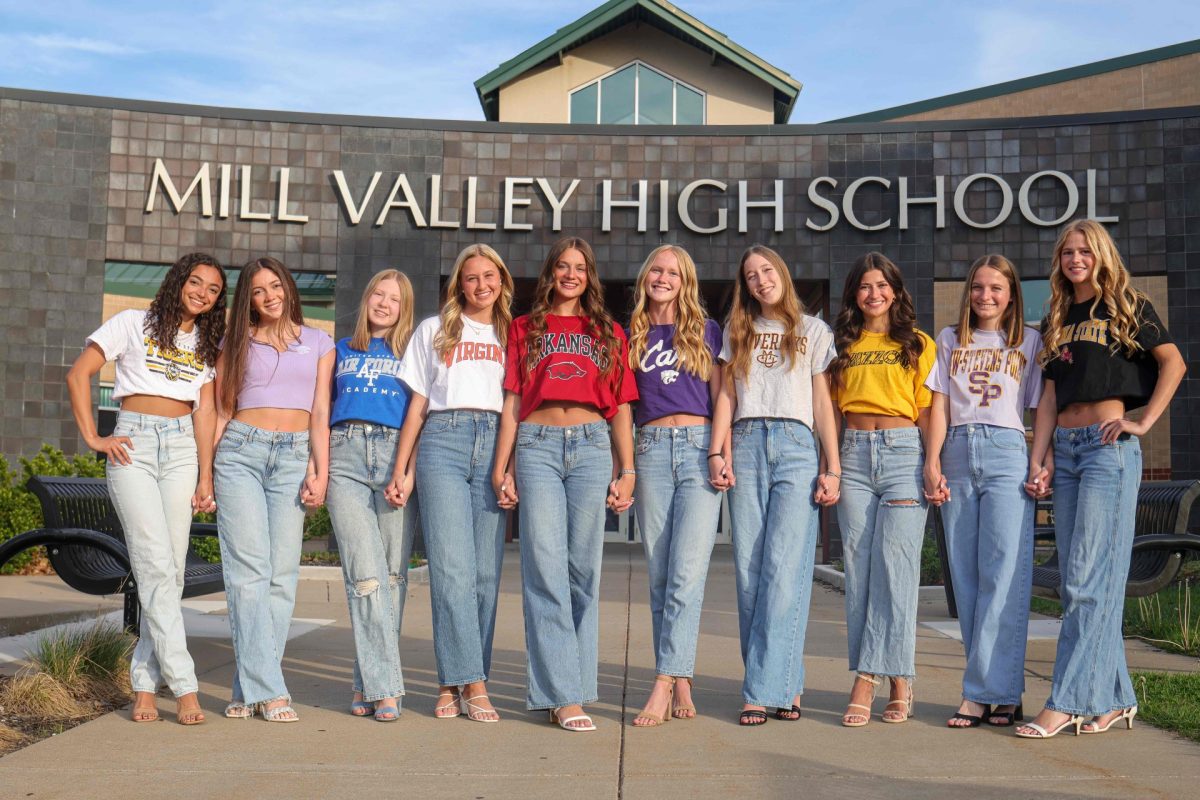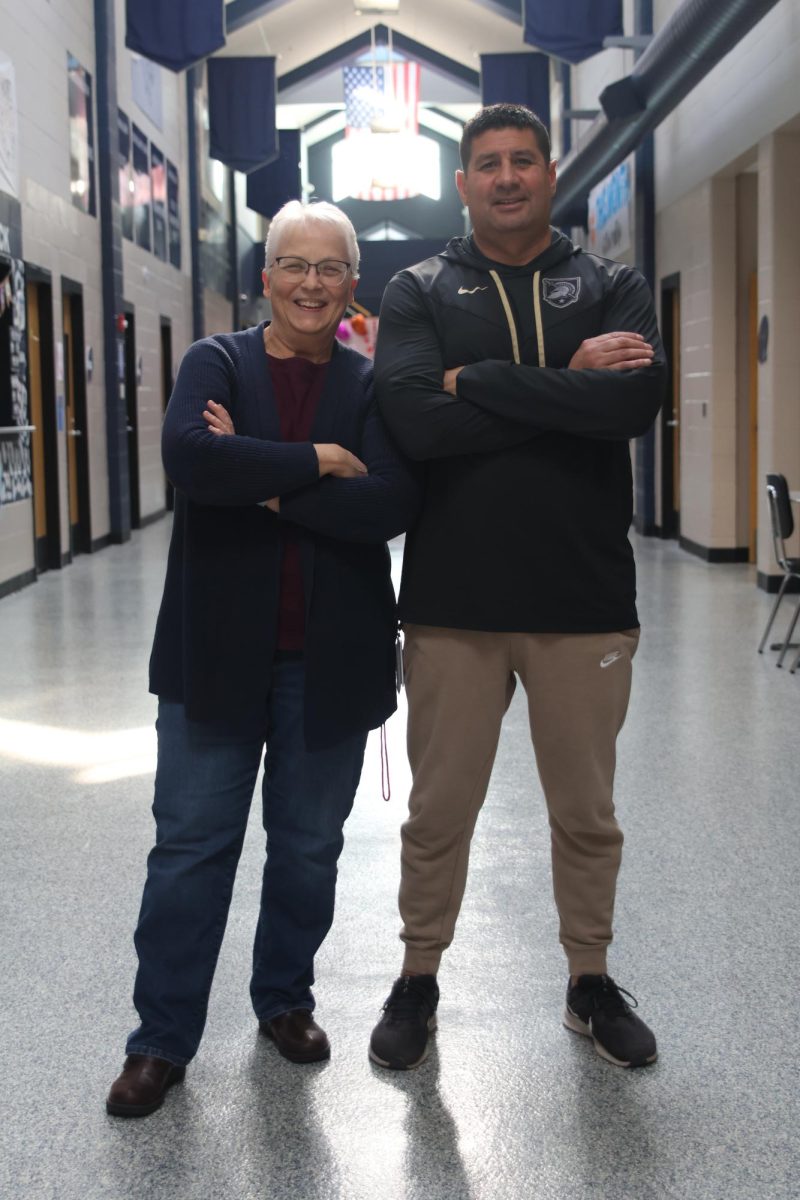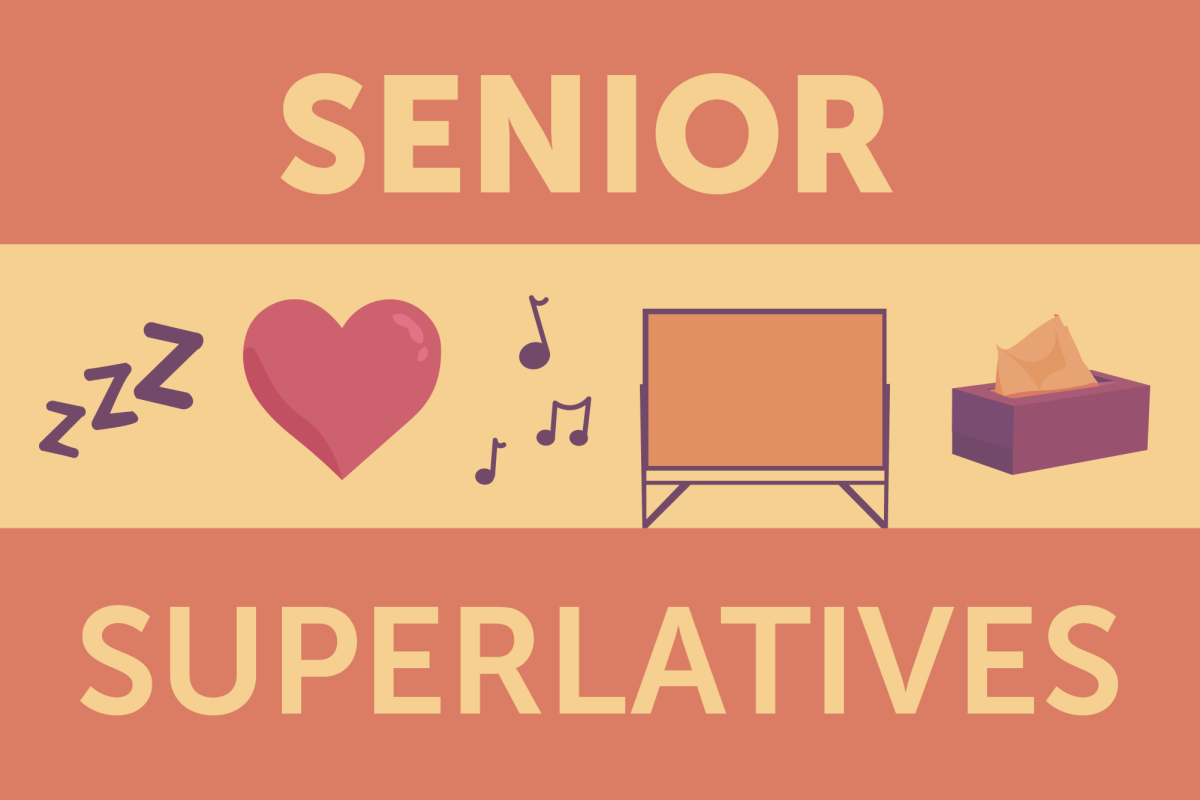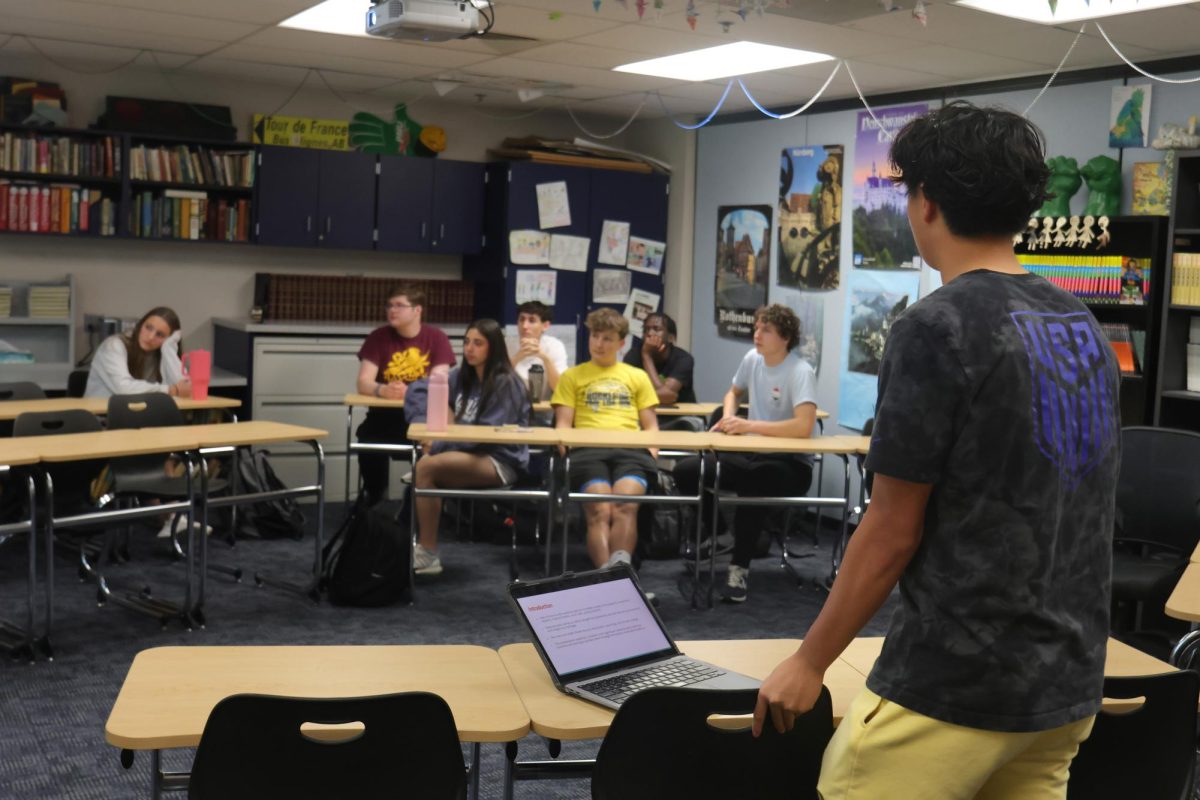As the bell rang to signal the start of Silver 4, four students made their way to separate desks in the Voyagers room. Gifted services facilitator Carmen Shelly sat at her desk and began the pullout on creativity and ambiguity by posing the question, “How creative are you?”
Voyagers is a service that centers around providing opportunities for students who show an above average potential for academics and need more of a challenge than the current educational classes offer. All Voyager students must have an Individual Education Plan, or IEP, a legal document that states how the specific student will benefit from the special education program.
Each student sets an individual goal and Shelly offers pullouts during regular class periods for the Voyagers students that help develop the skills they set in their IEP goals. Pullout topics include critical thinking, creative thinking, leadership, decision making, personal growth in time management, critical writing and reading and research skills.
“Our district has regulations on how gifted services are handled at each school,” Shelly said. “We don’t have an actual Voyagers class in high school like they do at the middle school and pullouts are my way of offering specially designed instruction to help students meet their IEP goals.”
Before beginning the main part of the pullout, Shelly asked the four students to come up with an analogy about how creative they are, citing the example: “Mrs. Shelly is to creativity as a grain of sand is to a beach.” After creating their analogy, the students filled out a creativity test.
Voyagers students have a specific number of minutes and days that they must meet and pullouts help them meet the IEP goals they set. Pullouts are a service provided to Voyager students that Shelly feels build upon what they already learn in class. Shelly feels that Voyagers students need time to talk to each other and that they “crave the intellectual banter that happens in [the Voyagers] room.”
“Pullout services are what we offer to students in order for them to reach their IEP goals,” Shelly said. “There are [also] incidental scenarios where students can come down and interact [on their own initiative]. Peer interaction is one of the biggest reason why we have the gifted program.”
Junior Olivia Harding said Voyagers helps to challenge her but that there are drawbacks to receiving services.
“You have somewhere to go where you have an extra challenge and somewhere to talk with people about deeper questions but sometimes its hard to get all your required hours in and not miss too many regular classes,” Harding said. “I’m in harder classes this year so it’s harder to miss some of my more difficult courses.”
If Voyagers students don’t meet time requirements that are set forth in their IEPs, they aren’t automatically ejected from the program, but it does factor into determining whether or not students really need Voyagers services.
In addition to meeting time requirements, Voyagers must write an exit pass about what they learned and how they grew after the pullout. Using the exit passes and self-reflection, they write a progress report at the end of every quarter. Shelly uses the reflections and her own observations to score their progress towards their goal. Shelly is then required to send a report about students’ progress to their parents near the time report cards are sent out.
After the students finished their creativity tests the pullout continues, by having the students discuss, in groups of two, what they thought creativity was, based on three of the questions featured in the test.
Most of more than 60 Voyager students joined in either elementary or middle school when they were identified, normally by a teacher or parent, to be academically ahead of their peers. From there, the students would have their MAP scores examined and their IQ tested. While it is possible for students to be put in the Voyager program during high school, it is unlikely due to AP and advanced classes providing some of the challenges that the Voyager programs offers.
While gifted services offer an extra outlet for intellectual challenges, sometimes it’s not enough to keep those types of students interested in school. According to a study done by The Huffington Post, as many as 20% [of gifted students] drop out of school.
“Research shows that gifted students are not always the perfect, high achieving students. They have learned to be class clowns or disruptive in classes when they are not challenged,” Shelly said. “Some choose not to do homework when it is too easy, and then they do not learn good study habits for when homework becomes necessary. Some choose to “buck” the system or the rules/laws; eventually, they can get in trouble.”
Other students try and to exceed their full potential and end up disappointed.
“[Some] gifted students become perfectionists,” Shelly said. They have wonderful ideas of what they should produce for their general education classes, but they don’t have the time or energy to always complete those projects to that level. This “failure” causes stress and depression. They simply don’t turn in work that doesn’t meet their own standards.
Freshman Jack Booth has been a Voyager since fifth grade and feels that Voyagers services have helped him stay focused at school.
“Contrary to popular belief we don’t just go [to Voyagers] to get out of classes,” Booth said. “Voyagers has kept me from developing a disinterest in [school].”

